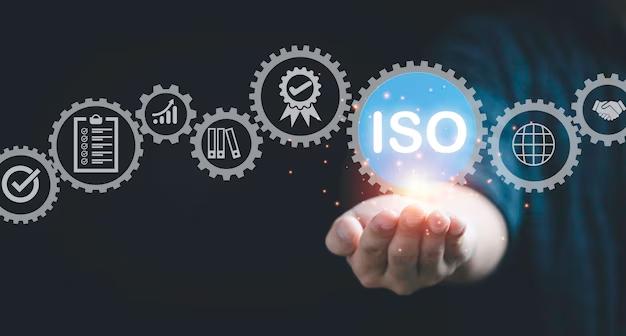
With crucial input and assistance from industries, academia, researchers, companies and the government, ISO has created over 22,600 standards in various sectors, some concerned with processes and others with goods and services. Several ISO standards may apply to your business. At the same time, you might want to pursue certification in some areas, but you can also adopt ISO compliance in others.
ISO certifications play a pivotal role in the global business marketplace. It represents a hallmark of quality and compliance. One of the widely applied and applicable to almost all sectors needing certification and compliance is ISO 9001 certification. If you are a company aiming to thrive in the competition, then ISO standards and certifications are essential.
Here are some of the most well-liked ISO Standard Types:
Quality Management:
The industry benchmark for organisations looking to streamline their quality assurance controls, standard operating procedures (SOPs), and policies is ISO 9001 for Quality Management Systems (QMS). The ISO 9001 standard covers the conceptualisation, execution and implementation of a QMS, especially whether quality assurance paperwork corresponds to quality management practises and is certifiable by various third-party auditors and registrars. Other 9000 family standards offer quality control systems for more specialised industries, such as solar panels and road safety.
Safety and Health
Health and safety standards are some of the most well-liked and well-known ISO offerings, ranging from ISO 22000, applied for Food Safety, to ISO 45001, implemented for Occupational Health and Safety. These procedure-based guidelines aid in the reduction of occupational risks, worker injuries, and disease transmission in the workplace. Additionally, they guarantee the safety of the goods we use every day. For example, an ISO-compliant restaurant company may help ensure that the foods it prepares are safe to eat, and an automaker can guarantee that the vehicles it produces are safe to drive.
IT and Information Security
The ISO 27000 series, and notably ISO 27001, is a well-known standard that aids in ensuring that a company is making every effort to maintain the security of its information. The measure, which an external audit may validate, describes the recommended practices for creating information security management systems (ISMS). Many security controls are covered by ISO 27001. Some people might even adhere to both standards, combining compliance efforts. Because it demonstrates to external stakeholders that the company is committing resources, diligence, and time to protecting and securing their information and is aware of how to prevent cybersecurity breaches, many operationally mature organisations opt to certify against ISO 27001.
Environmental Management
The ISO 14000 series of standards lays the foundation for how businesses should interact with (and safeguard) the environment. For instance, ISO 14001 describes how to consider environmental systems, such as weather patterns and various ecosystems, when creating, sourcing, and producing goods and services. The 14000 family also focuses on communication, environmental audits, and broad topics like climate change.
Events And Tourism
Large-scale events and tourism can strain a region’s economy, labour force, and nature. ISO standards make the safe, moral, effective, and sustainable administration of affairs possible. Following ISO 2012, for instance, can assist those organising big events in considering anything from capacity to zoning needs to environmental and labour concerns.
Social Responsibility
The 2010 publication of ISO 26000 continues the work that ISO did when it introduced ISO 14000. This standard provides recommendations on how businesses should adopt socially responsible practices that cover sustainability, respect for human rights, fair labour practices, and advancement of the economy.
Management Of Natural Resources And Energy
Businesses are working harder to increase sustainability as the world adjusts to environmental changes. The ISO has standards for managing resources sustainably and using energy, like ISO 50001, which directs businesses to create effective energy management systems (EnMS). The ISO emphasises that maximising energy consumption is excellent for the bottom line and enables organisations to convey to their stakeholders that they are implementing more sustainable practices. Organisations in all industries can benefit from increased energy use.
ISO certifications have played a multifaceted impact on the world of business, global trading, and ensuring the quality of the products and services across every aspect. Ensuring the organisations adhere to best practices, ISO certifications, and compliance is critical for every organisation.
Featured Image Source: https://img.freepik.com/premium-photo/businessman-hand-holding-virtual-iso-wording-with-quality-standard-icon-company-business-certificated-iso-is-international-standard-organization-certified-quality-assurance-concept_50039-3881.jpg?size=626&ext=jpg&ga=GA1.1.1173742830.1671113603&semt=ais



